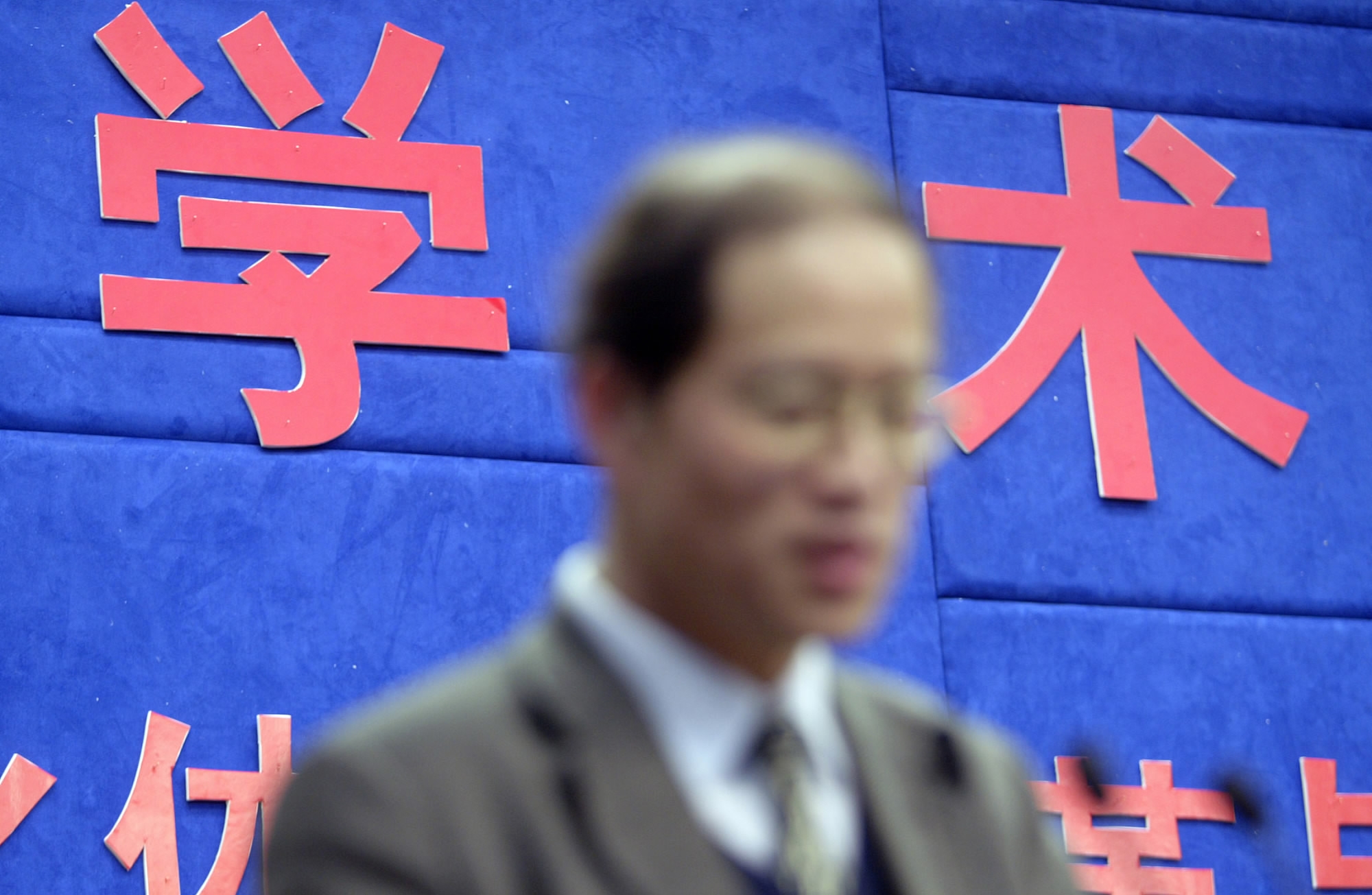China Association of Science and Technology (CAST) has held talks with representatives from publishing house Springer Nature after 107 scientific articles were retracted from journal Tumor Biology. CAST said it is willing to cooperate with Springer Nature, the publisher of Tumor Biology, to enhance and maintain academic integrity in international journals and publications.
On Thursday, Tumor Biology disclosed a mass retraction of 107 articles published between 2012 and 2016. Most were from Chinese researchers. The journal said in a statement that “after a thorough investigation we have strong reason to believe that the peer review process was compromised.”
Peer review is to assess the quality of articles submitted for publication in a scholarly journal. Springer discovered that the email addresses of peer reviewers -- experts in the same field who make sure the paper meets scientific standards -- were fake.

CAST held talks with representatives from Springer Nature. /CAST Photo
Peter Butler, editorial director at Springer for cell biology and biochemistry, who participated in the investigation process, told thepaper.cn that these retracted articles were submitted with reviewer suggestions, which had real researcher names but fabricated email addresses. The editors thought the articles were being sent out to genuine reviewers in the discipline. However, following the investigation and communication with the real reviewers, they confirmed that they did not conduct peer reviews.
The authors of the 107 retracted articles are from 125 Chinese institutions, and four foreign research institutions. Among the Chinese institutions, Huashan Hospital affiliated to Fudan University and Peking Union Medical College Hospital are prestigious medical research centers. The four foreign research institutes are Aichi Medical University from Japan, the Blood Center of Wisconsin, the University of Chicago and Toronto University.
Butler said peer review is the cornerstone of quality, integrity and reproducibility in research, and the retraction of papers and articles is to eliminate bad scientific records.
Global issue
Springer’s retractions were not aimed at any countries, Butler said during the interview. “Scholars anywhere have pressure in publishing articles, this is not a sole phenomenon in China, it’s a global issue.”
It is not the first time that Springer has retracted papers from journals.
In 2015, Springer Nature retracted 64 papers, which appear to have been authored by Chinese academics. The articles were published in journals on neurobiology, cancer research, biochemistry and other scientific topics and were written by academics based in a dozen Chinese cities including Beijing, Shanghai, Shenyang and Harbin.

CFP Photo
In November last year, Springer Nature retracted a total of 58 articles published by Iran-based authors across seven journals after a thorough investigation.
As many incidents of mass retractions and peer review scams have come to light, loopholes in the peer review process have been exposed.
Liability of the publisher
Butler said that many authors entrust their manuscripts to third-party agencies for language editing. However, these agencies sometimes proposing fabricated reviewer names. It remains unknown if the authors were aware of agencies’ moves.
The dependence on the peer review system has led authors, editors, and third-party services to take advantage of it.
CAST also raised the liability issue with Springer during the talks with the science publishing giant.
Wang Chunfa, the executive secretary of CAST, said during the meeting that the authors and third party agencies should be responsible for the retraction. Wang said internal regulations at Springer and the oversight of peer review system need to be improved. He added that Springer should take part of the responsibility to improve the quality control of journals and to solve problems before publishing, not retracting afterwards.
He also said Springer should be vigilant to those third-party agencies that colluded with journals, and added that CAST is willing to cooperate with Springer to maintain publishing honesty and integrity.









